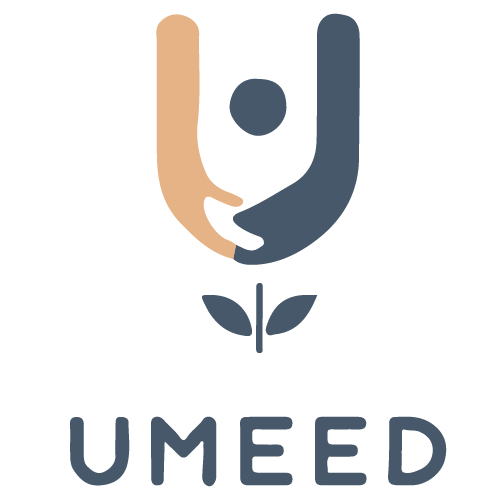
A crucial part of our everyday lives is making decisions, which affect how our relationships, jobs, and personal development develop. Mastering decision-making may have a big impact on your performance and well-being, whether you’re picking a professional route, investing money, or figuring out what to have for dinner. This essay will examine the fundamental abilities needed for sound decision-making, techniques for honing decision-making skills, and the significance of decision-making in a variety of contexts.
What are the 5 Decision-Making Skills?
Following are the 5 decision-making skills:
- Critical Thinking
Analyzing information objectively, assessing its applicability and dependability, and formulating logical conclusions are all parts of critical thinking. This ability aids in the evaluation of several possibilities and their possible consequences prior to decision-making.
- Problem-Solving
Skilled decision-makers are able to recognize issues, come up with potential solutions, and decide on the best course of action. People with problem-solving abilities may overcome obstacles and make wise choices in the face of ambiguity.
- Emotional Intelligence
Making informed decisions requires an understanding of and ability to control one’s emotions. Being emotionally intelligent is being aware of your own feelings, able to sympathize with others, and able to use emotions to inform decisions without becoming paralyzed by them.
- Risk Management
Risk management requires decision-makers to evaluate the hazards connected to various options and create plans to reduce them. This ability entails balancing possible benefits against potential hazards and coming to well-informed decisions that suit your goals and risk tolerance.
- Decision Implementation
Putting a choice into action is just the beginning; carrying it out successfully is just as crucial. Planning, organization, and communication abilities are necessary for decision-makers to guarantee effective implementation and follow-through.
Like How to Improve Decision-making Skills? you may also like to read about How to Enhance Your Communication Skills.
How can you Practice Better Decision-Making?
- Seek Feedback
To get insights into your decision-making process and areas for development, ask for comments from professionals, mentors, or trusted peers.
- Reflect on Past Decisions
Examine previous choices to see what went well and what could have been done better. By thinking back on previous events, you can find trends and improve the way you make decisions.
- Stimulate Decision Scenarios
To gain experience making decisions in a variety of situations, participate in role-playing games or decision-making simulations. This gives you the opportunity to practice in a risk-free setting.
- Increase Your Knowledge
To help you make better decisions, keep up your education on pertinent subjects and business sectors. The more information you possess, the more capable you will be to weigh your alternatives and predict possible results.
- Embrace Uncertainty
Develop the ability to accept ambiguity and make choices even in the absence of perfect knowledge. Develop the ability to make decisions based on the knowledge at hand while maintaining the flexibility to adjust to new conditions.
How can you Improve your Quick Decision-Making?
- Develop Intuition
Pay attention to your instincts and gut feelings to develop your intuition. When developed via experience and knowledge, intuition can frequently offer insightful information for making decisions quickly.
- Develop Time Management
Develop your time management abilities to set up enough time for making decisions while preventing needless delays. Set priorities for your work and use resources wisely to enable you to make decisions quickly without sacrificing thought.
- Establish Specific Goals and Objectives
To speed up the decision-making process, specify your goals and objectives in advance. Making quick decisions that support your overall objectives is made possible by having a clear idea of what you hope to accomplish.
- Make Use of Decision-Making Tools
To expedite the decision-making process and enable speedy option evaluations, make use of decision-making frameworks, such as the pros and cons analysis or decision trees.
- Trust Yourself
When making snap decisions, rely on your gut feelings and grow confident in your ability to make decisions. Overanalyzing can result in paralysis by analysis, but acting quickly is made possible when you trust your judgment.
Importance of Decision-Making
- Reaching Objectives
Through appropriate resource allocation and action guidance, decision-making supports the attainment of both personal and professional objectives.
- Solving problems
Making wise decisions promotes innovation and development in communities and organizations by recognizing and addressing obstacles.
- Risk Management
Risk management is the process of making decisions that help people and organizations manage risks and uncertainties in order to maximize prospects for success and minimize potential negative outcomes.
- Resolution of Conflicts
In order to reach an agreement amongst stakeholders who have different interests and viewpoints, decision-making is essential.
- Personal Empowerment
People may take charge of their lives, mold their futures, and find pleasure and satisfaction by making well-informed decisions.
Decision-Making Stages
Following are the five decision-making stages:
- Finding the Issue
The first step entails figuring out what issue or opportunity has to be resolved and realizing that a decision is necessary.
- Information Gathering
To comprehend the aspects impacting the decision and assess the possibilities, decision-makers gather pertinent information and data.
- Option Analysis
During this phase, decision-makers evaluate the possible results and ramifications of each choice, balancing the advantages and disadvantages to help them select a choice.
- Making the Decision
Using the analysis as a guide, decision-makers decide which alternative is best and decide on a course of action.
- Executing and Assessing
The last phase entails carrying out the choice, keeping an eye on its advancement, and assessing the results to ascertain its efficacy and make any required revisions.
Conclusion
It takes a lifetime of experience, self-reflection, and constant learning to become an expert decision maker. People can improve their capacity to make wise decisions and confidently and clearly traverse the complexities of life by learning practical tactics, honing important decision-making abilities, and realizing the value of decision-making. Recall that every choice you make affects your future, therefore make an investment to develop your ability to make decisions in order to reach your full potential and succeed in all facets of your life.
